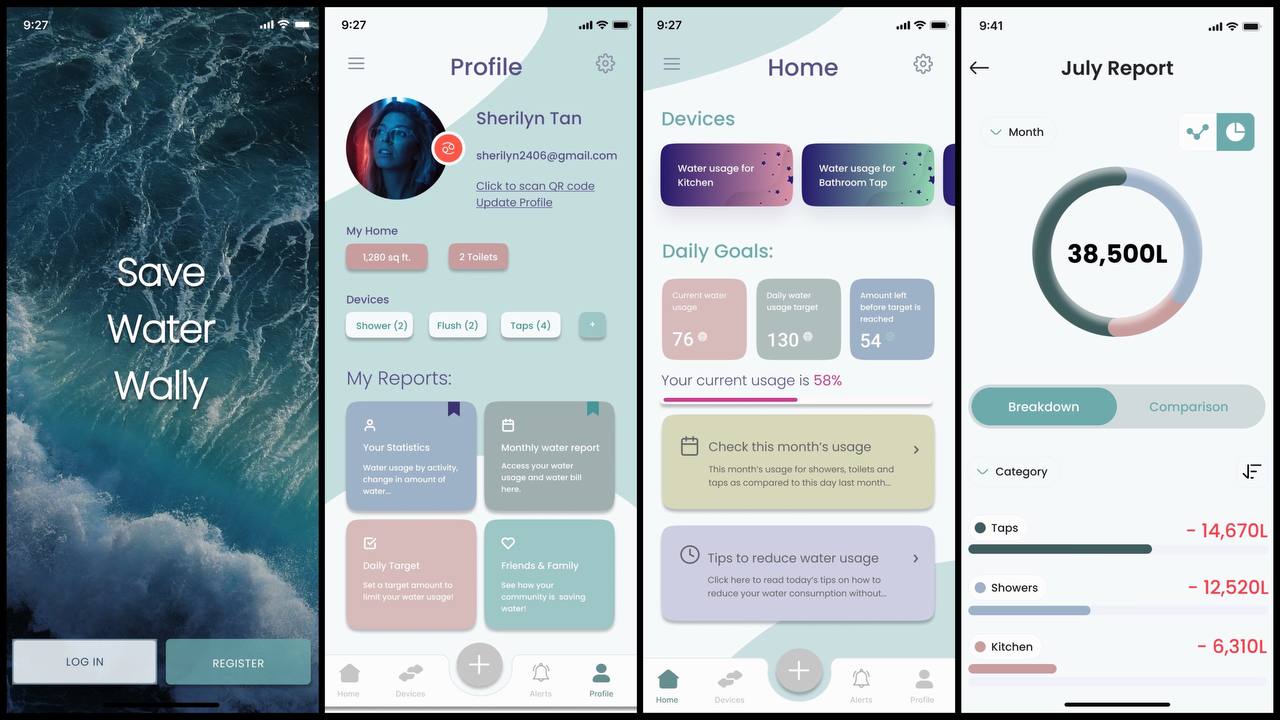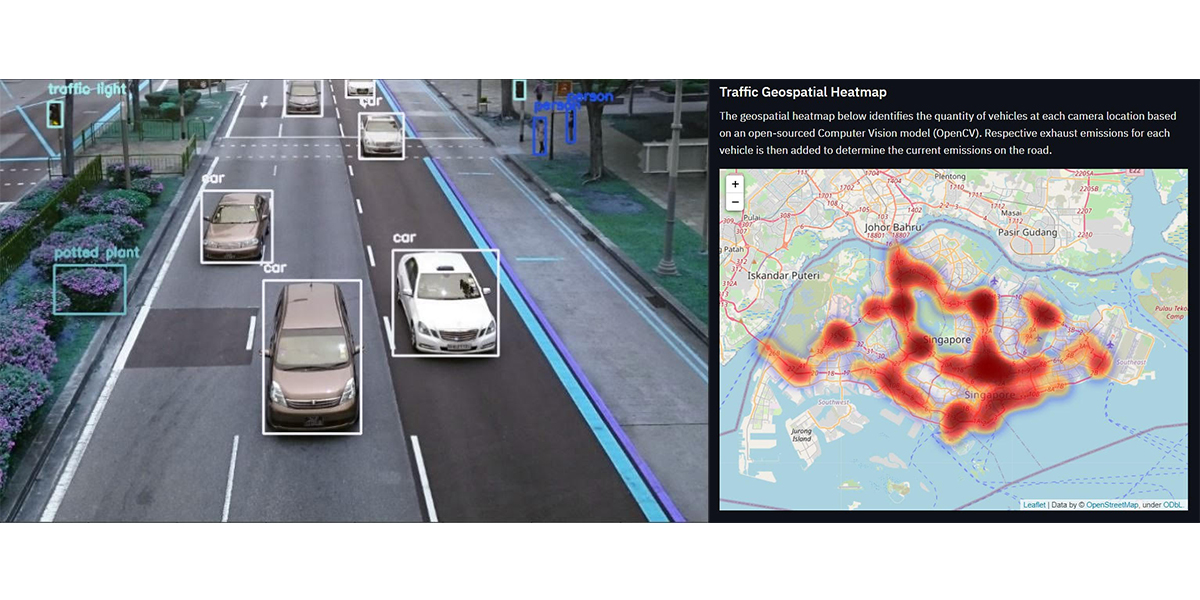
Vertical farming, tracking of water usage and visualisation of vehicle emissions. These are the winning ideas that had emerged from the inaugural Code for Cities hackathon organised by SMU Anthill Society in collaboration with Surbana Jurong from 12 July to 6 August 2021.
SMU Anthill Society is a special interest group from the School of Computing and Information Systems (SCIS). The group aims to enhance the experiences of students in the field of Smart City Management and Technology through workshops to learn and discuss Smart City issues, as well as offer hands-on experience with Smart City technologies.
Surbana Jurong is one of the largest Asia-based urban and infrastructure consulting firms.
The competition, held virtually, aims to expose SMU students to real-life industry problems and develop innovative solutions from ideation to prototyping. The preliminary round, held from 12 July for a month, attracted the participation of 11 teams.
The theme of the competition was Environmental Sustainability & Resiliency. Participants had to derive data analytics insights from relevant open-sourced data sets and develop solutions to a specific smart city challenge they have identified.
Five teams were shortlisted for the finals on 6 August. The judging panel was made up of Mr Eugene Seah, Managing Director of Surbana Technologies; Ms Clarrie Liew, Assistant Manager of Group Communication and Branding, Surbana Jurong; Mr Daryl Oo, Director, Sales and Account Management (Smart City), Surbana Technologies; Mr Ivan Chan, Senior Manager, Head Solutions, Surbana Technologies.
The teams were judged on Methodology, Clarity of thought process, Business case and plan, Bankability.
Team TonTon, comprising SCIS students Shureen Teh, Yu Yiling, and Ong Zheng Jie emerged top and walked away with $1,000 cash and internship placement with Surbana Jurong. The team harvested online data to plan how to best farm vertically in Singapore, given the country’s high reliance on food imports and the lack of land for agricultural activities. Its solution was to utilise technologies and data analyses to identify the best locations for vertical farming on HDB rooftops and pedestrian bridges, both of which are ubiquitous in Singapore. The team also planned the layout of the vertical farms and the potential yields of these farms.
SCIS students Lee Ruei Lynn, Tanya Elizabeth Khoo, James Tee and Renee Lee Ying from Team Wonkies took the runner-up spot and cash prize of $600. The team found that there is a general lack of awareness among consumers of their water bills, as well as a demand for a convenient way to track their water consumption and their bills. The team conceptualised a complementary two-pronged approach to address the issue. It developed a mobile application called SaveWaterWally as well as an external smart detector. The app aims to educate the public on water consumption and inculcate water-saving habits through data analytics and behavioural incentives. The detector works in sync with the mobile application to track the water usage of its users.
Coming in third is Team Traffic Psychics comprising SCIS students Biondi Lee, Loh Kok Wee, Liam Wells Ayathan, Joshua Jed Ghinn, and Sherlin Choo Zhi Yi. The team noted that over the last decade, there has been an increase in vehicle usage in Singapore, which has resulted in a rise in the emission of harmful gases. With this in mind, the team decided to develop a visualisation tool for vehicular emissions that can better inform decision-makers at the governmental and institutional level. Using a real-time open source dataset of traffic images, the team created a computer vision model that analyses vehicular density at a particular location and is able to calculate corresponding emission data to monitor the total emissions of an area. The results are displayed on a dashboard that is simple and intuitive to use.
Sebastin Goh, President of SMU Anthill Society said, “The Society is privileged to have organised this hackathon in collaboration with Surbana Jurong. Their emphasis on sustainable and resilient urban living makes Surbana Jurong the perfect sponsor for Code for Cities hackathon as it offers SMU students the opportunity to work on a real-world problem statement focused on analytics for a smarter city. Overall, this hackathon is a significant and tangible step towards value-adding to SMU undergraduates by linking academic skills and concepts to evolving smart city domains, and enabling them to apply classroom learning to real-world problems.”
Shureen Teh of Team TonTon said, “We decided to take part in this competition as we wanted to try something related to our Smart City Management and Technology major. Initially, we had a lot of ideas, but had trouble deciding on one. Nevertheless, we rallied together and decided to work on the idea of vertical farming. Given the tight deadline, we encountered a number of challenges, such as contradictory information on the same topic on different websites. We contacted local farms for their advice and to verify the information we had gathered. We also had to manage our time wisely as we have other commitments such as internships and co-curricular activities.”



